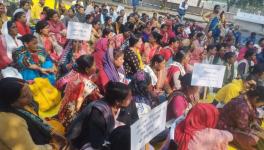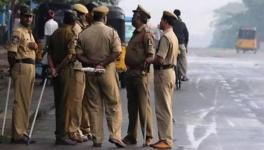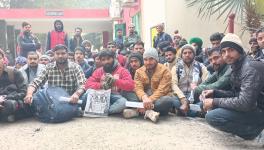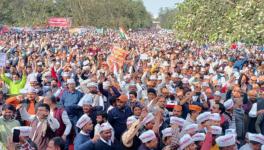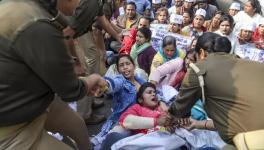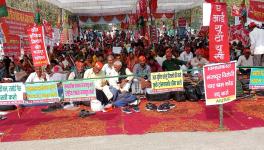UP: Posters of 8 Anti-CAA Activists Put up Once Again, Bounty Announced
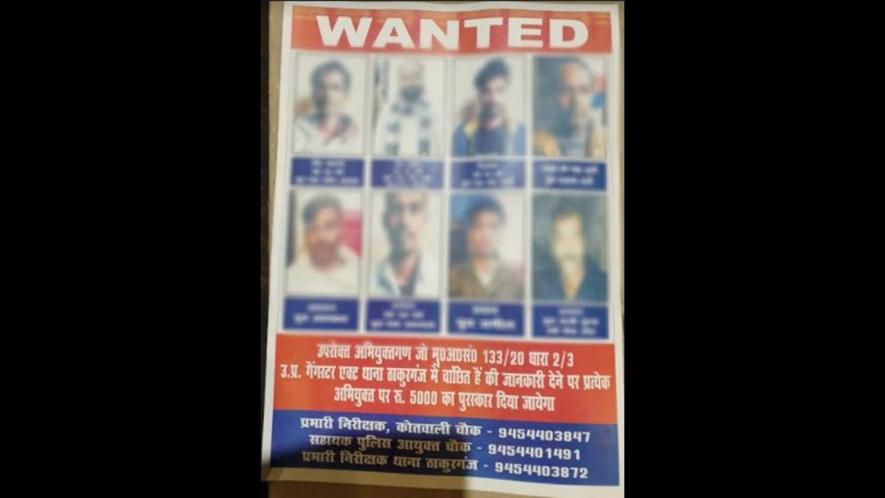
Lucknow: Authorities in Uttar Pradesh’s capital have once again put up posters with photographs of activists who had campaigned against the anti-Citizenship Amendment Act (CAA). Posters across Lucknow announce a reward of Rs 5,000 for anyone who parts with information regarding their whereabouts. Families and activists condemned the move as “unethical” and “misuse of law”, saying it was an open invitation to lynch mobs.
The posters – labelled “WANTED” with the faces of eight anti-CAA activists – have been put up by the police in Lucknow late on Wednesday evening. It declared them “absconder(/s)” and put out their names and addresses. An announcement was made on a loudspeaker in Thakurganj’s by lanes seeking details about them.
All the accused are from the Thakurganj area of old Lucknow. Mobile numbers of senior police officials of the Thakurganj police station have also been provided in the posters so that clues could be forwarded to them.
The accused have been booked under The UP Gangsters and Anti-Social Activities (Prevention) Act, 1986. A police official said that the activists were involved in the “violence” during the anti-CAA protests in 2019 and had been “missing” since. He added that pictures of the accused have been put up everywhere they were likely to meet. Posters and notices have also been put up near the houses of the accused.
The eight protesters are Mohammad Alam, Mohammad Tahir, Rizwan, Naib alias Rafat Ali, Ahsan, Irshad, Hasan and Irshad. They have been accused of vandalism during protests in December 2019 against the Citizenship Amendment Act.
Some who feature in the posters have said they will go to court for the “public humiliation” when charges against them are yet to be proven.
A family member of one of the activists, who wished to remain anonymous, called the move by the UP police “unethical” and vowed to take legal recourse. “The Adityanath government is making us vulnerable to the lynch mob by publishing our photos and addresses. The chief minister is clearly provoking his anti-national and anti-social followers to attack and kill us,” he said. He added that despite the Allahabad High Court order saying that the posters were an “unwarranted interference in the privacy of people” and in violation of the Constitution, the state government repeated the act.
Calling the action by the state as highly unjust, the Allahabad High Court had said that it was an encroachment on the personal liberty of individuals. The court had reserved verdict in the case on March 9, 2020.
The BJP government in Uttar Pradesh led by CM Yogi Adityanath had put up similar posters of 53 anti-Citizenship Amendment Act protesters along with their names and addresses at important crossroads of Lucknow. The posters said they were supposed to a pay fine for damage caused to property on December 19.
S.R. Darapuri, a human rights activist and former Inspector General of UP police, whose photo and address had been put up earlier, slammed the Yogi government for misusing the law.
"The Yogi government is misusing the National Security Act (NSA), Goonda Act, and Gangster Act for crimes whose victims are predominantly Muslims and Dalits. Such a draconian law is supposed to be used against a person who is a serial offender,” the former police officer said, asking how the government could resort to humiliation over something that had not been proven in court.
Vivek Kumar, a legal expert, echoed a similar sentiment and said that the picture of any accused could not be made public, even if they were booked under the Gangster Act or were absconding. “The police is empowered to give a notice under Section 82 of the CrPC and attach the property of the accused by a criminal order under Section 83 of the CrPC 83. But displaying the picture of an accused at a public place is a clear violation of the Constitution and shows the how government is authoritarian,” he said.
The CAA was passed by Parliament on December 11, 2019. It led to protests across India and violence in UP. At least 23 people were killed across Uttar Pradesh during the protests. Most of the dead were Muslim daily wagers who allegedly succumbed to police bullets.
A large number of protesters were sent to jail, and were later released on bail. However, the state government installed hoardings and banners with photographs and addresses of the activists at several intersections across the state. It said they had to compensate for the damage done during the clash between police and protesters.
Get the latest reports & analysis with people's perspective on Protests, movements & deep analytical videos, discussions of the current affairs in your Telegram app. Subscribe to NewsClick's Telegram channel & get Real-Time updates on stories, as they get published on our website.









